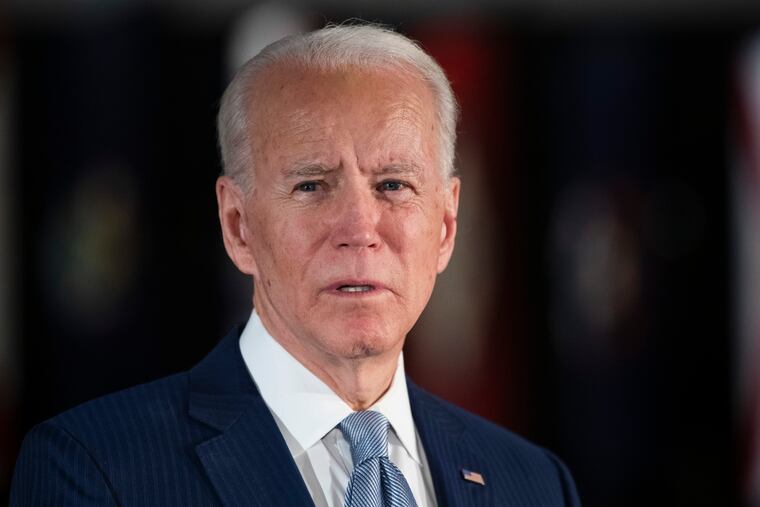Joe Biden shouldn’t police blackness, but he wasn’t totally wrong | Solomon Jones
Like the Joe Familiars of North Philly, though Biden might not have been the right one to say what he said, that doesn't mean he was completely off the mark.

During my teen years in North Philly, we had a label for the guy who got a little too comfortable before he really got a chance to know you.
We called him Joe Familiar.
He was the guy who said things that might’ve been appropriate coming from your cousin or your best friend. However, those same statements were not cool coming from Joe Familiar, because you and Joe didn’t have the kind of relationship that allowed him to speak frankly about personal matters.
Last week, during an interview on the Breakfast Club, a black-oriented syndicated radio show based in New York City, presumptive Democratic presidential nominee Joe Biden became Joe Familiar. And it wasn’t a good thing.
“If you have a problem figuring out whether you’re for me or Trump,” Biden said during an interview with co-host Charlamagne tha God, “then you ain’t black.”
The Breakfast Club airs in over 90 radio markets. It is simulcast on Revolt TV, the digital music cable network founded by Sean “Diddy” Combs. The show is beyond influential. It is essential content for African Americans, especially those in the younger demographic where Biden doesn’t poll as well as he does with black seniors.
So, when word got out that Biden was advising African Americans on what it means to be black, social media caught fire. Political skeptics ran into the streets yelling, “I told you so.” And Biden, who has often put his foot in his mouth during his long political career, was once again the poster child for liberal paternalism.
To be clear, Joe Biden, as a white man, was wrong to assume that he could advise African American voters on qualifications for blackness.
But just like the Joe Familiars of old, though Biden might not have been the right one to say what he said, that doesn’t mean he was completely wrong.
Donald Trump has major problems on race, and that’s putting it mildly. A Washington Post/Ipsos poll conducted in January found that more than eight in 10 African Americans believe Trump is a racist and that he has made racism a bigger problem in America.
Trump was sued by the Justice Department for refusing to rent to blacks. He campaigned for a group of black and brown boys, the famous “Central Park Five,” to receive the death penalty for raping a white woman — a crime they didn’t commit. He called African countries s—holes. He said very fine people were among those who marched with neo-Nazis during a violent confrontation in Charlottesville, Va., over Confederate monuments. And he seems increasingly indifferent to the life-and-death consequences of a virus that is disproportionately killing African Americans.
So yes, it’s hard to imagine that black people would support Donald Trump. Yet, there are those who do. Not many, but some. Earlier this year, a Wall Street Journal/NBC News poll found that Trump had about a 14% approval rating among African Americans.
That support split along gender lines, with 24% of black men approving of Trump’s job performance, and just 6% of black women doing the same.
Those numbers remind me of the misogyny I witnessed in the black community during Trump’s run for the presidency against Hillary Clinton. There were black men — particularly older black men — who called my talk show at Philadelphia’s WURD radio and told me they were voting for Trump because they didn’t believe a woman should be in charge.
I didn’t agree with them then and I don’t agree with them now. Still, their support for Trump doesn’t detract from their blackness.
In reality, the African American community is incredibly diverse in terms of how we think and what we support. Whether we are Democrats or Republicans, liberals or conservatives, rich or poor, we are still black, and the fact that we don’t always agree simply means we are still human.
In my view, if you don’t know whether you’re for Biden or Trump, you might not understand what’s happening in the world. You might not know what’s affecting your life. You might not see who’s good for you and who’s not. But that doesn’t mean you ain’t black.
That just means you ain’t woke.